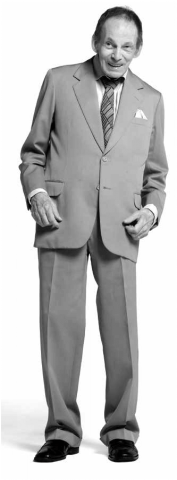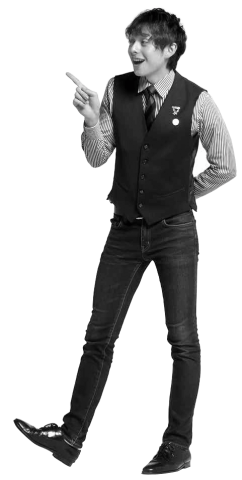Issue:
AN INTER-FAMILY INTERVIEW LEADS TO SOME SOUL SEARCHING AND PERSONAL DISCOVERIES

Secrets of the son
by HARRY SUGIYAMA
Iam rather ashamed to say that, after many years spent studying Shakespeare, Chaucer and Latin at boarding school in England, I hardly remember a thing, apart from the football. However, a quote that I came across back then, on a sunny summer afternoon watching cricket, occasionally comes to mind even a decade later:
“What was silent in the father speaks in the son, and often I found in the son the unveiled secret of the father” Friedrich Nietzsche
I never studied philosophy and only have a vague impression of the great German thinker’s writing, but this quote made me wonder. What could be my father’s secrets? What evil deeds or qualities has he hidden, locked up in the deep dungeons of the heart? And are they going to be revealed one day in me, Harry Sugiyama? Are those brain cells that he has given to me going to excel and assert themselves?
As I pondered over the possibilities, I finally came to the conclusion that, in truth, I hardly knew my father. Despite all those years we spent kicking footballs as high as we could (which sometimes landed on the dark tinted windows of the Mercedes-Benzes parked in our Roppongi neighborhood), and despite calling him by his first name, “Henry,” since I was wee high, we had never really had a proper, face-to-face conversation, apart from family financials. All I knew about him was that he was a veteran journalist who had friends from all sorts of backgrounds, that he was a man who always chose quality over quantity, and that he was not fascinated by money a big difference from his son.
And so the scene was set: I a presenter on NHK would interview the great journalist Henry. Weird with a capital “W”; awkward to say the least.
What followed was a grueling two and a half hour serious dissection of my father in front of the cameras. I didn’t go into it half hearted, I was going to tackle him and put him on the spot. I was going to “interview” him but also had a mind to “kindly interrogate” him in order to challenge Nietzsche’s words.
However, I found no need for interrogation. An outpouring of British traditional public school mannerisms and banter ensued, but give him credit, it was done with true style. We covered a huge amount of ground, from the arrival in 1964 through Mishima and the three Abes. It was a whirlwind of fascinating and revealing information, the portrayal of a man who well and truly plunged himself deep into Japanese culture without regret. And boy has he loved it! He was “an insatiable cormorant,” as Shakespeare would say, thirsty and hungry to know the mind and power of the Rising Sun.
I was staggered. I hadn’t seen Henry speak with such conviction and passion for donkeys’ years (apart from when he discovered that his son has devoured the stock of Cadbury Fruit and Nut that he had hidden away).
Suddenly, something occurred to me. While true that this interview was meant to go back in time and clarify who exactly my father is for people who might be interested in his past, why couldn’t I make this a personal thing too? Let this occasion not be just a history lesson; let it be human, something that even people of my own age could relate to. It needn’t be complicated, it just needed to be about me. In other words, just what did the old man think of me?
It turned out that my father believes I have a penchant for “failing upwards.” He used it to describe my failure to get into Oxford. (Believe it or not I was the first from the English side of the family to fail to do so in over a century, and had considered it a black spot tattooed into my heart.) And it was true. I failed. I thought I could trick those professors at Oxford in their centurion tweed jackets with my public school charm, but thank god they tore me to shreds. If they hadn’t given me the thumbs down I would never have gone to China and it’s very likely I would never have come back to Japan and be in the position that I am in now. Yes, I am a beautiful example of “failing upwards.”
I was relieved. Tears fell. Was it because of these lovely words? I don’t know. But I felt purged of a black spot that has taunted me all these years.
Then I began to wonder. While these words have had a massive impact on me, maybe it is exactly what the people of this country need. What if these same words magically found their way into the mouths of stern, serious bureaucrats, company men and fathers across the country? Would the future of Japan change? It’s a fat crime to fail here just look at history and the warlords who couldn’t live with the shame of it.
Come on Japan, do not fear shame. With Abenomics at the ready, it’s time to put the foot down and “fail upwards!” But before I forget, here’s another question for you, Henry. How did you fail upwards? Nietzsche wants to know!
Harry Sugiyama Scott Stokes was educated at Winchester College. He now works as a TV talent and presenter in Tokyo.

Secrets of the father
by HENRY SCOTT STOKES
If Nietzsche needs to know, then give him the example of my time at the New York Times office in Tokyo in the 1980s. I was the bureau chief here, the big cheese. The stuff I wrote was conveyed to the U.S. and read by Americans all over, notably in Washington DC. I carried more clout than, say, the U.S. ambassador to Japan (or so I was told). My daily stuff got read at breakfast time in the White House well before they saw what that lovely ambassador Mike Mansfield and his staff had thought fit to write and transmit from Tokyo.
Not that I thought I wrote very well. I lacked the basic skills of a news agency trained reporter like the AP lot. Friends in journalism in Paris (where I lived with Aki for five years prior) had burst into laughter when I told them that I had been tapped for the job of bureau chief in Tokyo with the sacred Times. After all, it was the Ark of the Covenant, the holy of holies and then some.
“But Henry, how will you cope with that? You don’t know how to write a news story,” said Bob Mauthner, the wry Paris correspondent of the Financial Times at that time.
Nevertheless, I took the job in Tokyo basically for financial reasons, since we were, as usual, broke. But after only a few years on this plum job 1978 to 1983 I let it slip! I failed upwards!
I loved the paper. What went wrong I could never quite figure out, stupid me. It was something to do with endemic laziness. Even the NYT, blessed organ of the press, had limitations, I discovered, mainly to do with work in Korea, not so much in Japan. In other words, my paper hesitated to touch on the fundamentals to do with the U.S. military. The galling thing was that I myself was hard pressed to analyze what was going on. I became part of the problem. I just didn’t dig deep enough.
So what were they to do with me? Even 30 years down the pike, I shudder at the embarrassment. And that famous line of Groucho’s “Don’t let the door hit you on the way out” still sticks in my head. Some of the most distingué newsmen in the business were eventually involved in the task of finding an elegant solution to the question Abe Rosenthal was one, Scotty Reston was another. I became in the words of Joe Lelyveld, “the former Henry Scott Stokes.” Very funny, Joe.
So I finally took a hint from my favorite person on the NYT, the immortal Sydney Gruson. Sydney was very high on the totem pole at the paper. As deputy chairman he occupied a roomy office next to Punch Sulzberger, the publisher. Sydney a short, small, peppery Jew from Dublin came from nowhere and he just implanted himself in The Times as the man who knew how to keep Punch happy and life worth living.
He was the ultimate exponent, as I never tire of repeating, of the concept of failing upward. All I had to do, he made me understand, was to accept a cash settlement and walk out on West 43rd St. with a huge smile on my face, to show the world that I was happy . . . that good things would surely come to pass.
I saved my life, as it were, by following Sydney’s main precept. That boiled down to having you, Harry, in l985, and to taking a ten year leave of absence from journalism, while I got to work with some of the finest artists I knew Henry Moore in the UK and Christo and Jeanne Claude in New York. I was able to indulge my interest in the arts to the full, mainly as one of the key people involved in “The Umbrellas, Japan USA, 1984-91.” Working as the so called Project Director healed my soul.
So “failing upward” may be a family trait. In fact, despite your “failing” at Oxford, your years at London’s SOAS, at university in Beijing, and the Tokyo Chinese language institute have made me proud. Especially that year in Beijing, where you picked up Chinese as if your very life depended on it. Ever since my first trip to China in l964 I had wanted to find a way into the labyrinth on the mainland. And on my visit some half dozen years ago, watching you hold a long, detailed discussion on the menu with the maitre d’, I realized that, well, now I have a proxy to do it for me.
“Getting to know one’s father is a significant moment in life,” you said to me during our interview. Ditto for getting to know one’s son. As to those deep dungeons of the heart that you referred to, I’ll just have to say, “Keep digging, Harry. Keep exploring.”
Henry Scott-Stokes was educated at Winchester and New College, Oxford.

